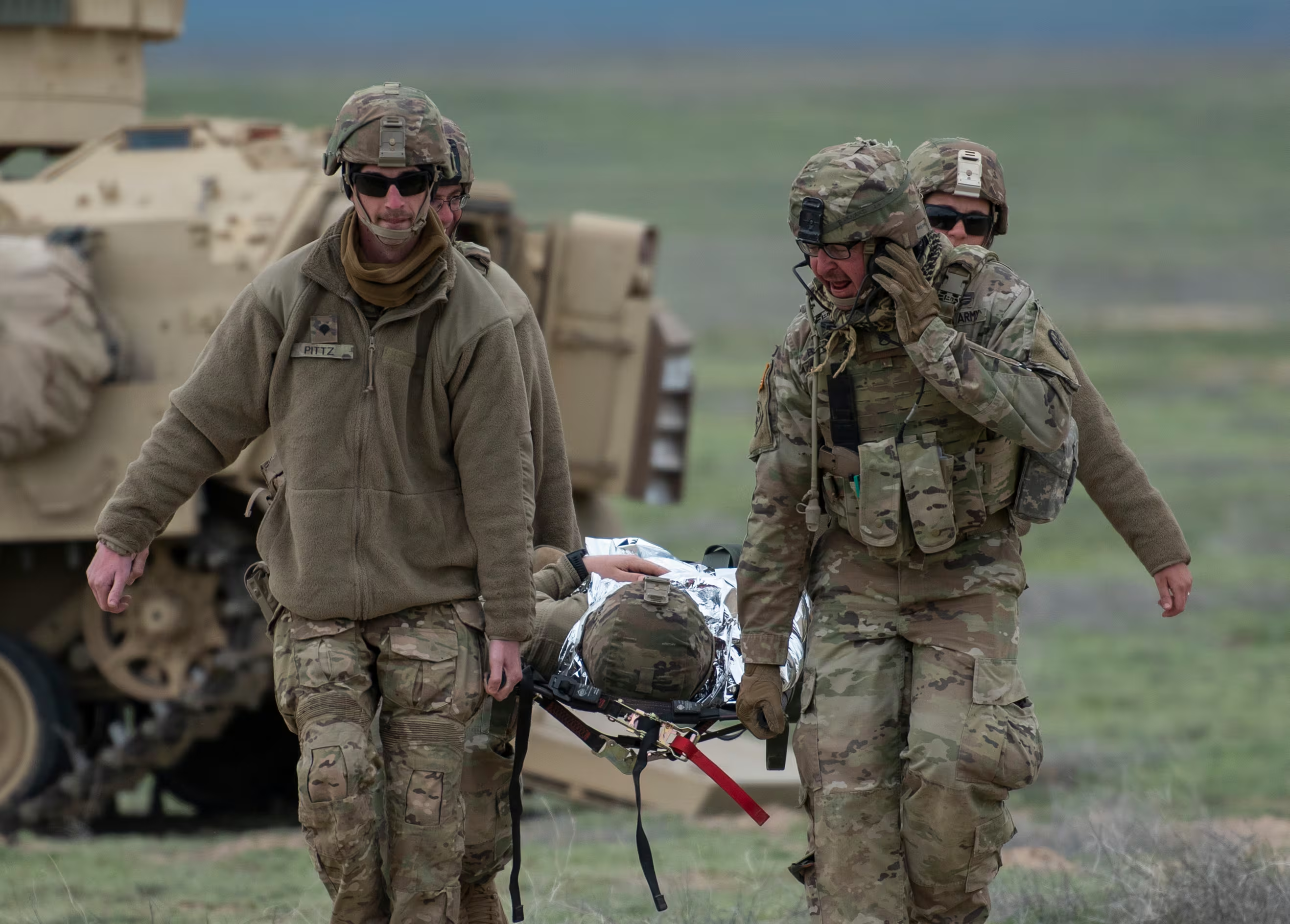The Senate Armed Services Committee released its $602 billion draft of the annual defense authorization bill Thursday that goes along with White House funding plans for the military next year but sets up a budget showdown with House lawmakers later this summer.
The measure includes a 1.6 percent pay raise for troops in January and includes major overhauls of the military health and justice systems, both designed to modernize those bureaucracies.
It reduces military leadership staff and trims the number of general and flag officers by 25 percent. And the measure for would for the first time require women to register in the Selective Service System, should the nation ever require a return to a military draft.
Committee Chairman Sen. John McCain, R-Ariz., said the measure amounts to "the most sweeping reforms of the organization of the Department of Defense in a generation."
But despite similarities with House reform efforts, the funding difference will be the key fight in the weeks ahead for congressional negotiators.
The Senate bill generally stays with funding levels laid out in last year's budget deal, totaling about $543 billion for base defense functions and $59 billion for overseas contingency operations.
House lawmakers matched that total but shifted about $18 billion from the temporary war spending assignments into the base budget, providing funding for overseas operations for only seven months of fiscal 2017.
House Democrats called that Republican plan risky and irresponsible, and McCain signaled weeks ago he did not support that approach.
But he also acknowledged on Thursday that his committee's plan, passed by a 23-3 vote, still falls woefully short of the money needed to fully prepare and equip the military. He is expected to offer a funding boost amendment during debate on the Senate floor later this year, a move that the White House and Democrats have refused unless it's met with equal non-defense spending hikes.
Part of the extra House base spending included a more generous 2.1 percent military pay raise, equal to the expected rise in civilian wages in 2017.
The 1.6 percent pay raise backed by senators matches the White House's request for 2017 and translates into $30 to $60 more a month for most enlisted personnel, and $60 to $120 for most officers. It would be the highest wage hike for troops since 2013, but would continue a six-year streak of military pay increases below 2 percent.
Reconciling the two different figures will require bridging a $330 million gap in spending for next year alone, and billions more in ensuing years.
Lawmakers will also have to reconcile differences in the health care reform plans, where the reform philosophies intersect but the details vary greatly.
For example, the House plan would include reorganizing multiple Tricare programs into two options: the existing Tricare Prime program and Tricare Preferred, a new network care option similar to Tricare Standard and Extra.
The Senate plan calls for three new Tricare health plans: Tricare Prime, Tricare Choice and Tricare Supplemental, with different fee structures and parameters than the House proposal.
Both chambers want a more efficient and integrated military hospital system, but the Senate plan calls for a reorganization of internal management plans and individual site improvements. The House plan calls for reassigning all military medical facilities under the Defense Health Agency, with significant operational and priority changes.
One similarity in the two plans for now is the inclusion of women in the Selective Service System. Both chamber's plans also call for a review of the system's functions and responsibilities, with a possible eye towards elimination in the future.
But even that point of agreement could change. The full House is expected to debate its version of the budget policy language next week, and several lawmakers have said they'll move to strike the draft requirement for women from the legislation.
No timetable has been set for when the full Senate will debate its draft of the bill. Lawmakers from both chambers are hopeful a compromise measure can be finalized by early fall, but the limited legislative schedule during an election year makes that goal difficult.
The authorization bill has been ultimately approved by Congress for 54 consecutive years, making it one of few bipartisan highlights each year for an increasingly partisan Congress.
Leo Shane III covers Congress, Veterans Affairs and the White House for Military Times. He can be reached at lshane@militarytimes.com.
Leo covers Congress, Veterans Affairs and the White House for Military Times. He has covered Washington, D.C. since 2004, focusing on military personnel and veterans policies. His work has earned numerous honors, including a 2009 Polk award, a 2010 National Headliner Award, the IAVA Leadership in Journalism award and the VFW News Media award.





